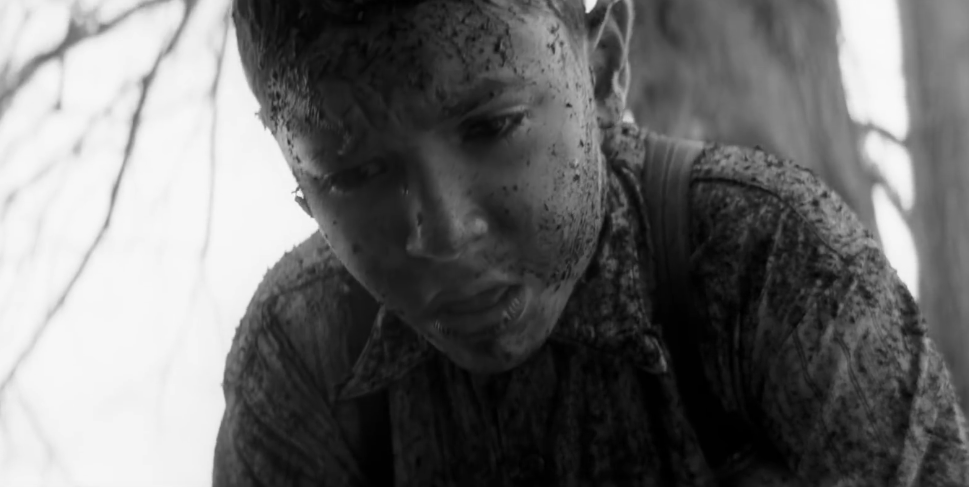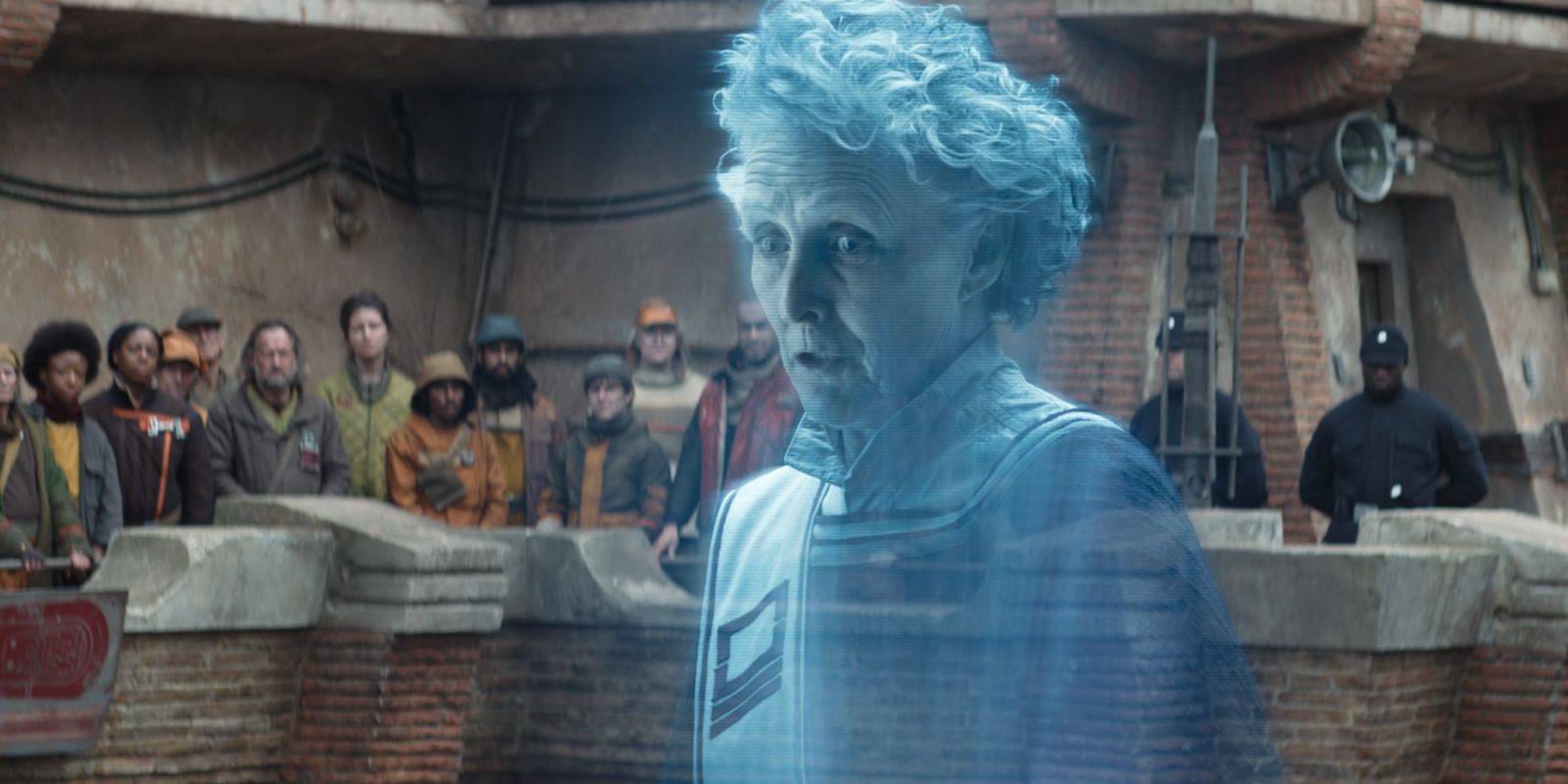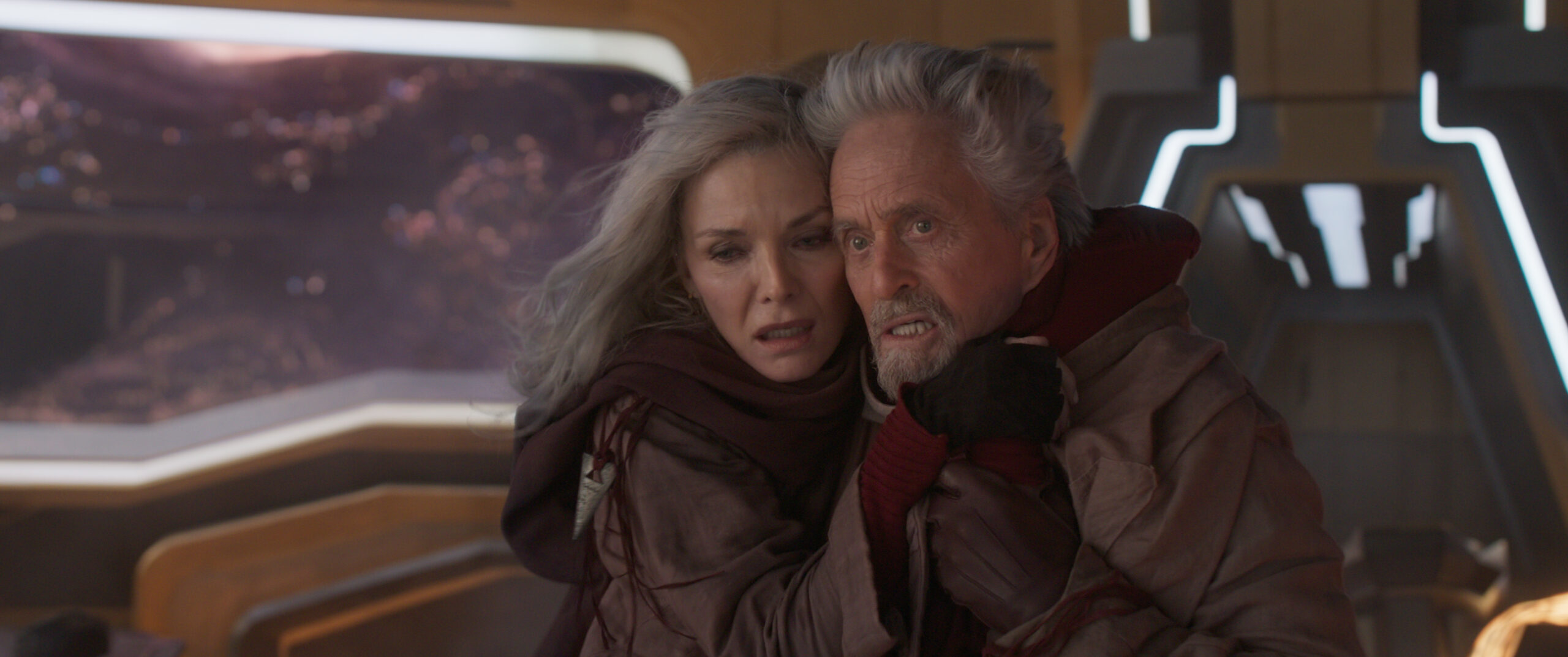
Not all movies are meant to be easy to watch. Many are meant to be challenging. To force us to consider harsh truths or different perspectives. This seemed to be what writer, director, and producer Václav Marhoul was going for with his latest film The Painted Bird.
This Czech film takes place during World War II, so right off the bat, you know you’re dealing with some harsh subject matter, and Marhoul wasn’t interesting in shying away in any way.
The film played at the Venice Film Festival, won Best Screenplay at the Cannes International Film Festival, and has since been selected as the Czech entry for the Best International Feature Film category at next year’s Oscars. I had a chance to speak with Marhoul over the phone and discuss this beautiful, yet harsh project.
LRM Online: My experience watching this film was like, “Whoa! Eye opener.” Some scenes were, honestly like shocked me and left me in tears. You being the writer of those scenes, having seen them on the screen in the first time, did any of them leave you in shock?
Marhoul: It’s a good question in itself, I must tell you generally, we found every shot, so it wasn’t about how technically, let’s say the shot is difficult, because each detail is a part of the whole story. It was really quite important. One scene was, let’s say for me, absolutely one of the most sensitive, and this is a scene about the Jews on the train, and they just only tried to escape from the train. And when he shot it, we made it four days, and when we shoot it on the middle, how all those people are trying to run away. It was quite okay, but when we moved with a camera inside the wagon and I just put them all extras, which was about 100 people, in the wagon, and the wagon was most still about 30% of the capacity. It was crazy, and the wagon was an original one. It was an original wagon from the second world war.
And I just only sat on my chair, just on the beside the camera, and when the train has only moved on, I couldn’t shoot, because I start to cry. So tears in my eyes, so much because I am not a Jew, but I’m from the Jewish family. And in 1943, 18 people from my family being brought by the same wagon, by wagon like that. I didn’t see the extras, I saw my family there. And I couldn’t shoot, let’s say, more than one hour. I couldn’t, I absolutely couldn’t shoot. I couldn’t work. You know? So I was trying and nobody knew what was going on. You Know, the crew looked at me and the extras looked at me and nobody knows what was going on, why director is crying so much. You know? But it was so strong.
And after one hour, I just only concentrated myself. I said, “Well people, I’m so sorry. No, just only that’s my story. This part of my family.” So that’s what happened, so now we can work, we can move on. So this was the most, I’d say, difficult moment for me during the shoot day. But generally I know what you are looking for, or you’re asking me. This film is really very complicated. But generally I have to say, that when I read this book, first time in my life, 2005, 2006 if I remember, always and the people are saying, “Vaclav, you must be crazy.” I always said, “Look, this book and this film is about the three most important things in our life. It’s about good, love, and hope.” And the people are looking at me and they are saying, “Vaclav, you must be crazy. You must be definitely crazy because this is not about good, love, and hope. This is crazy.” And I’m saying, “Look, just only try to think of it from my side, from my people, that this film is based on the opposites.” It means that if you are missing somebody in your life, for instance, my parents, when they went out, so then in that very moment, you are feeling that you are really missing your mother or father. Never you can really realize how important it is that you are healthy. You will get a terrible disease, so you will never really realize how the love is important, and you are missing the love. There are about nine chapters on the movie.
So each chapter you can find out some, let’s say sign of good, hope, and love.
LRM Online: It’s a strong movie. You have to have a strong stomach for it, I think. I mean, I, myself, I think I have a strong stomach, but there were some parts where I was just, you think it cannot get any worse, and yet you’re shocking people with more. It was a tough one. So my eyes are already, just thinking about it.
It was kind of shocking and kept like keeping me in suspense and with my mouth open. Was it the same way reading the novel? For those that have not read the novel. I mean, this was a very popular novel back in what, 1965, I believe. I mean, it was a major work for the Holocaust literature back then. So how did you come across the novel now, and what was it about it that made you say, “I want this. This needs to be placed in big screen”?
Marhoul: Right. Yeah. Okay. Since the very beginning, I was feeling that this book is not about the Holocaust. That this is definitely not a war movie. So in my point of view, not Holocaust movie, not war movie. This is a, in my point of view, this is a universal story. It just takes place during the second world war. And it doesn’t matter that a boy is a Jewish. It is a Jewish, it’s not so important. Most important is that he is simply different, that he is different. And I was thinking many times, why this book really became a world best seller, why so many people really love this book. Even the book is, believe me, much more cruel than the movie. Much more, much more. You know? It’s crazy. And the violence and brutality because you saw my movie, it’s a very decently shown.
I am not showing explicitly what’s going on. I’m just only, well, very decently in a very working way. I’m showing what’s going on, but of course it works. It works. Maybe it works much, much better, or maybe it’s more, how to say it, more truthful, that if you don’t see those things on the screen, and now you have those things on your mind, on your brain, that you are projecting all those things inside of you, as all other people. So it’s not like the other very violent movie, among the Hollywood, most of the Hollywood, when the people are killing each other. But nobody takes care because it’s a fiction. It’s a fiction. It’s a fairytale, I’d say.
And that’s why, the people, they can enjoy it. The trouble is, The Painted Bird, it’s truthful. So in my point of view, it’s not the message or the mission of this movie, it’s not about the Holocaust or the war, but about the humankind in general, about us. Because what’s going on in The Painted Bird, in this moment, we are talking to each other, it’s going on in Syria or is going on in Sudan or it’s going on in Afghanistan. So many orphans I know in the Europe, from all those refugees, they did come here because they tried to escape in the war, and that just approximately 15,000 orphans are in Europe at the moment. And nobody’s taking care of them, and those children are going to be the victims or the criminals. They are selling them. It’s crazy.
So this is what The Painted Bird is about. It’s why I’m saying it’s a universal story. And I do understand that for all those people, it’s much better and much comfortable to close eyes. Of course, it’s much better to live in our bubbles. You know? We do have everything of course, but since the very beginning, I did want to make the movie like that. So I’ll never… To don’t make any compromises. Don’t sign the agreement with the audience, “Look, this is a fairytale.” No, I didn’t want to do that.

LRM Online: Now let’s talk about the length of the film. I imagine, I mean, it’s 169 minutes. Did you have to actually cut it down to less time, or how was that?
Marhoul: Yes. Yes, of course. We shoot it in 104 days. So, and chronologically, we shoot it chronologically. We shoot it, one and a half year. And during the one and a half year, we did have 104 shooting days. And the first version of the rough cut was four and a half hour. The rough cut. The first version. So the final cut, it’s about two hours and 49 minutes. And so, we edited this movie, maybe, Oh my God, six or seven months, just only really step by step. Because the most important for any movie, I’m not just only talking about The Painted Bird, but the most important for any movie is tempo. It’s tempo. And the tempo is consequently about the rhythm of any movie. So this is a lot. This is a lot for any director, just only to really to maintain this tempo, and the tempo is like a river.
So if the river is still changing, I mean, the streams and sometimes you stop. Sometimes the stream is going to be, let’s say, faster. And then you have a waterfall, and then it will stop the water. That’s what the movie is about. So in my point of view, it’s not so important in the film is about two hours and 49 minutes, because I saw many movies, which was about one and a half hour, but after 20 minutes, I didn’t know how to sit, because it was so boring because of tempo was terrible, and the story was terrible. And for instance, when I saw the Francis Ford Coppola, Apocalypse Now in director’s cut, which is more than four hours. I saw it six or seven years ago. Really, I was feeling that I’m sitting on a white horse because the tempo was great, and I didn’t care that the film was more than maybe four hours and fifteen minutes.
But it was wonderful because he knew what to say, how to say it, and he changed the tempo and logically, then consequently the rhythm of the movie. So it’s a difference, in my point, within the real time in our lives, and the time on the screen. But in fact, I cut off more than about two hours. Two hours, just only cut off. And believe me, I’m a director which is, all those shots are my babies. But believe me, if I am feeling that this shot is even, if it’s great and wonderful, “No, please. Sorry. Goodbye, never I would like to meet you again, because you are just only damaging the tempo of my movie. Sorry, goodbye, see you sometime. Maybe never.
Don’t forget to share this post on your Facebook wall and with your Twitter followers! Just hit the buttons on the top of this page.
—–
Have you checked out LRM Online’s official podcast feed yet The LRM Online Podcast Network, which includes our flagship podcast Los Fanboys, our premiere podcast Breaking Geek Radio: The Podcast, and our morning show LRMornings? Check it out by listening below. It’s also available on all your favorite podcast apps!
Subscribe on: Apple Podcasts | Spotify | SoundCloud | Stitcher | Google Play

 FOR FANBOYS, BY FANBOYS
Have you checked out LRM Online’s official podcasts and videos on The Genreverse Podcast Network? Available on YouTube and all your favorite podcast apps, This multimedia empire includes The Daily CoG, Breaking Geek Radio: The Podcast, GeekScholars Movie News, Anime-Versal Review Podcast, and our Star Wars dedicated podcast The Cantina. Check it out by listening on all your favorite podcast apps, or watching on YouTube!
Subscribe on: Apple Podcasts | Spotify | SoundCloud | Stitcher | Google Play
FOR FANBOYS, BY FANBOYS
Have you checked out LRM Online’s official podcasts and videos on The Genreverse Podcast Network? Available on YouTube and all your favorite podcast apps, This multimedia empire includes The Daily CoG, Breaking Geek Radio: The Podcast, GeekScholars Movie News, Anime-Versal Review Podcast, and our Star Wars dedicated podcast The Cantina. Check it out by listening on all your favorite podcast apps, or watching on YouTube!
Subscribe on: Apple Podcasts | Spotify | SoundCloud | Stitcher | Google Play




